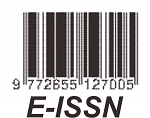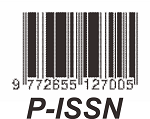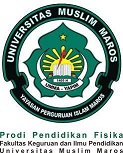The PENGARUH MODEL REQOL (REAL QUEST OUTDOOR LEARNING) TERHADAP KEMAMPUAN BERPIKIR KRITIS DAN HASIL BELAJAR FISIKA SISWA SMA
DOI:
https://doi.org/10.46918/karst.v6i1.1796Keywords:
Keywords : ReQOL Learning Model, Critical Thinking, Learning Outcomes.Abstract
The goal of this study is to evaluate the impact of the ReQOL model on high school students' critical thinking and cognitive learning outcomes. This experimental research method uses pre-test and post-test questions to collect quantitative data from the results of students' critical thinking assessments. All of the pupils in the XIPA class at SMA Negeri 1 Natar made up the study's population. Purposive sampling is used to choose the research sample. Class X IPA III served as the control class in this study, and class X IPA VIII served as the experimental class. Test questions and observation logs were used to obtain the data. Utilizing independent sample T tests and effect size. According to the findings, there was a difference between students who used the ReQOL learning model and those who used Direct Instruction when learning about harmonic vibrations. This difference was based on the significance values of the test Smirnov, which were 0.076 for the pre-test and 0.167 for the post-test in the experimental class. The level of significance of the data is revealed to be 0.000 < 0.05 based on test results from an independent sample T test, indicating that the ReQOL model has a significant impact on improving high school students' critical thinking abilities and academic performance. Based on these results it can be concluded that there is an influence of critical thinking skills and student learning outcomes following the ReQOL learning model in class X IPA physics at SMA Negeri 1 Natar.
References
Azahra, A. C., Nisrina, N., Mumtaza, N., & Rahmawati, I. (2022). Pembelajaran Kolaboatif untuk Melatih Keterampilan Pemecahan Masalah Siswa dalam Pembelajaran Fisika. FORDETAK:Seminar Nasional Pendidikan: Inovasi Pendidikan Di Era Society 5.0, 103–111.
Charmila, N., Zulkardi, Z., & Darmawijoyo, D. (2016). Pengembangan soal matematika model PISA menggunakan Konteks Jambi. Jurnal Penelitian Dan Evaluasi Pendidikan, 20(2), 2. https://doi.org/10.21831/pep.v20i2.7444
Ennis, R. H. (1996). Critical Thinking Dispositions: Their Nature and Assessability. Informal Logic, 18(2), 165–182. https://doi.org/10.22329/il.v18i2.2378
Fraenkel, J. R., Wallen, N. E., & Hyun, H. H. (2012). How to Design and Evate Edition). Lawrence Erlbaum Associates. New York. Hlm 567.
Gagne, R.M & Briggs, L.J. (1979). Principles of Instructional Design. New York. Holt, Rineharrt and Winston. Hal 598.
Manggala, I. S. A., & Yuniawatika. (2023). Develop Students’ Mathematical Literacy in Learning. Proceedings of the International Conference on Information Technology and Education (ICITE 2021), 609(Icite), 261–265. https://doi.org/10.2991/assehr.k.211210.044
Marfuah, I., Subanti, S., & Mardiyana. (2016). Proses Berpikir Kritis Peserta Didik Dalam Memecahkan Masalah Sistem Persamaan Linier Dua Variabel Ditinjau Dari Gaya Belajar Kelas Ix B Smp Negeri 2 Surakarta. Jurnal Elektronik Pembelajaran Matematika, 4(7), 4. http://jurnal.fkip.uns.ac.id
Mortimore, P. (1996). Learning: the treasure within. In Higher Education Policy (1st ed.). UNESCO. https://doi.org/10.1016/s0952-8733(97)00029-9
Nasution, M. K. (2017). Penggunaan Metode Pembelajaran Dalam Peningkatan Hasil Belajar Siswa. Jurnal Ilmiah Bidang Pendidikan, 11(1), 9.
Nedovic, S., & Morrissey, A. M. (2013). Calm active and focused: Children’s responses to an organic outdoor learning environment. Learning Environments Research, 16(2), 281–295. https://doi.org/10.1007/s10984-013-9127-9
Nikhilkumar D. Parikh. (2016). Effectiveness of Teaching through Mind Mapping Technique. International Journal of Indian Psychology, 3(3). https://doi.org/10.25215/0303.054
Setiawan, M. A. (2017). Belajar Dan Pembelajaran.jakarta: uwais inspirasi indonesia. Hal 192.
Sudijono, Anas. 2010. Pengantar Statistik Pendidikan. Jakarta: Rajawali Press.
Wisman, Y., Effrata, E., & Tutesa, T. (2021). Penerapan Konsep Instrumen Evaluasi Hasil Belajar. Jurnal Ilmiah Kanderang Tingang, 12(1), 1–9. https://doi.org/10.37304/jikt.v12i1.105
Downloads
Published
Issue
Section
License
Karst : Jurnal Pendidikan Fisika dan Terapannya, adalah Jurnal Akses Terbuka (Open Access Journal). Penulis yang menerbitkan artikelnya dalam jurnal ini setuju dengan ketentuan berikut:

This work is licensed under a Creative Commons Attribution-ShareAlike 4.0 International License.
You are free to:
- Share — copy and redistribute the material in any medium or format
- Adapt — remix, transform, and build upon the material for any purpose, even commercially.
- Attribution — You must give appropriate credit, provide a link to the license, and indicate if changes were made. You may do so in any reasonable manner, but not in any way that suggests the licensor endorses you or your use.
- ShareAlike — If you remix, transform, or build upon the material, you must distribute your contributions under the same license as the original.
- No additional restrictions — You may not apply legal terms or technological measures that legally restrict others from doing anything the license permits.








94.jpg)

















